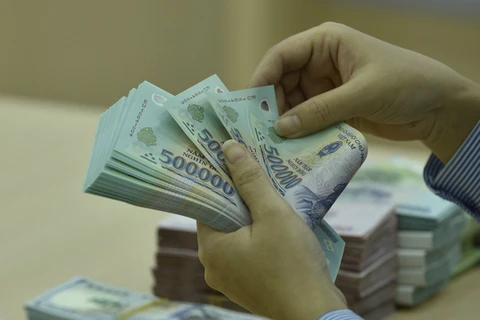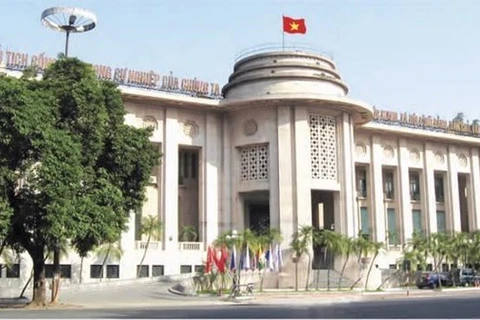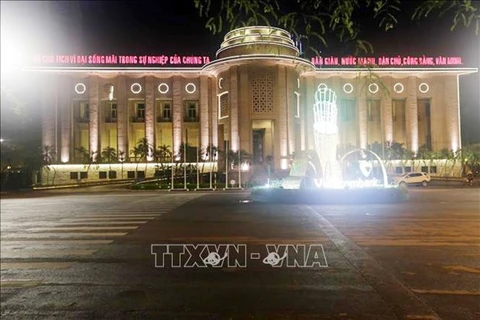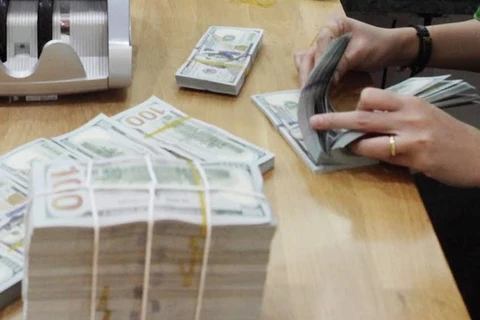Hanoi (VNA) - The US Treasury Department’s labelling of Vietnam as a currency manipulator is groundless and certainly significantly affects the psychology of the Vietnamese business community, especially those operating in the import and export field, according to Hoang Quang Phong, Vice President of the Vietnam Chamber of Commerce and Industry (VCCI).
He quoted Prime Minister Nguyen Xuan Phuc as saying that Vietnam does not manipulate the currency, but flexibly regulates monetary policy to control inflation, stabilise the macro-economy, and manage exchange rates. It does not aim to create unfair competitive advantages in international trade.
The Prime Minister also instructed the competent agencies to work with US partners to together solve existing problems in order to maintain stable trade relations, towards a harmonious, sustainable and mutually beneficiary trade balance, he said.
Phong added that the State Bank of Vietnam also urged commercial banks to make adjustments in exchange rates, and if necessary, to reduce profits to create favourable conditions for businesses to gain easier access to capital flows and foreign currencies.
With such accusations, it will not be easy to persuade partners, especially those from the US, he said, noting this is the time for a consensus among the business community to change the way of thinking and implement many solutions such as bargaining and negotiating before the US promulgates and imposes subsequent measures.
In parallel with the efforts of the Government and competent agencies, he went on, the business community needs to focus resources to increase the legal compliance capacity and improve knowledge and understanding about laws on integration and international commitments under signed free trade agreements.
Enterprises, especially importers and exporters, should quickly study and grasp information about trade dispute resolution methods, including the use of trade and international arbitration, he said.
Vu Duc Giang, Chairman of the Vietnam Textile and Apparel Association, said businesses, especially those in the garment and textile industry, need to improve their supply chains, thereby improving quality and reducing production costs. In case sanction measures are applied, they should work with US partners to minimise possible impacts and damage.
According to Asso. Prof. Dr. Nguyen Duc Thanh from the Vietnam Centre for Economic and Strategic Studies (VESS), to avoid impacts on the domestic economy, Vietnam should review the current balance, actively balance trade, and increase imports from the US stably, thus reaching trade balance with the American country.
"Currently, the US side wants to reduce competition from Vietnam, especially the goods that it thinks originating from the Republic of Korea or China but through Vietnam to export to the US. Therefore, Vietnam needs to be cautious and stand proactive in strictly controlling goods imported into Vietnam in this form, particularly those from China that are subject to the US’s high tax rates,” he said.
Keeping a close watch on the national financial and monetary policy of Vietnam for more than 20 years, Dr. Tran Du Lich, member of the National Monetary and Financial Policy Advisory Council, affirmed that Vietnam has never had a policy of devaluing its currency in the form of currency manipulation to create competitive advantages in international trade.
He explained that the Vietnamese economy is mainly based on the processing industry that imports raw materials for processing and production. Therefore, if Vietnam devaluates the currency, it will lead to the burden of increasing input costs for production.
In addition, as national debts are mainly from foreign corporate loans, the currency devaluation will push debts in VND up.
These are the two main reasons proving that Vietnam does not manipulate its currency as the US side accused, Lich stressed.
On December 16, Vietnam, together with Switzerland, was labelled by the US Department of Finance as a currency manipulator.
The US uses three criteria to determine if a country is a currency manipulator. In addition to the current account surplus criterion, the two others are a bilateral trade surplus with the US of at least 20 billion USD and intervention in foreign-exchange markets that exceeds 2 percent of GDP./.
VNA

























